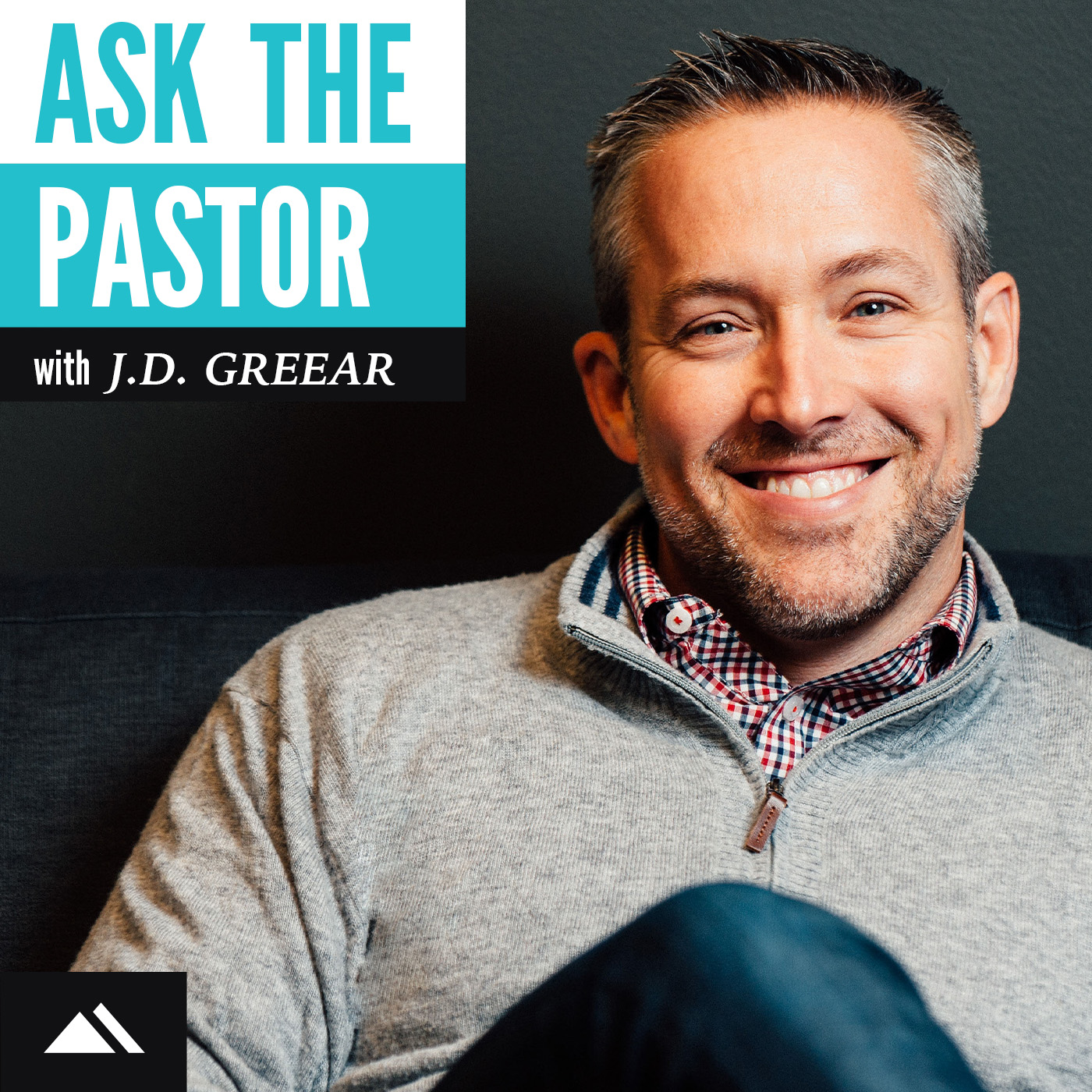

Ask the Pastor with J.D. Greear
J.D. Greear
Ask the Pastor with J.D. Greear is a weekly podcast that answers tough questions and tackles relevant issues in a way that is filled with grace, understanding, and wisdom from God’s Word. Hosted by Matt Love.
Episodes
Mentioned books

May 18, 2020 • 12min
Why Are You a Southern Baptist, Anyway?
Pastor J.D. talks about the importance of doctrine, values, and mission when aligning with a denomination and shares some of his convictions.

May 11, 2020 • 12min
Do All the Promises of God Still Apply to Me?
Pastor J.D. discusses the different types of promises we see in Scripture and how God’s promises are still true for us today.

May 4, 2020 • 9min
How Should We Think About Preserving Life vs. Stimulating the Economy?
Pastor J.D. explains why the seemingly obvious lives vs. livelihood answer is more complicated than we think.

Apr 27, 2020 • 10min
Is it ever right to see coronavirus as evidence of specific judgment from God?
Pastor J.D. talks about how times of suffering, like the current coronavirus pandemic, should be viewed in connection to God’s judgment.

Apr 20, 2020 • 13min
Is church online really church?
Pastor J.D. shares some of his thoughts about doing church online, especially in light of the current coronavirus pandemic.

Apr 13, 2020 • 8min
What does the cancellation of the SBC Annual Meeting mean for you?
With the cancellation of the 2020 Annual Meeting of the Southern Baptist Convention, Pastor J.D. Greear briefly answers what that means for him over the next year.
Resources:
Why canceling the 2020 SBC Annual Meeting is putting 'Gospel Above All'
2020 SBC Annual Meeting canceled
Baptist Press COVID-19 coverage

Apr 6, 2020 • 13min
Should you send your kids to public school, private school, or home school?
Pastor J.D. talks about some key advantages and disadvantages to each type of schooling and how Scripture guides our decision-making.

Mar 30, 2020 • 11min
What if I don’t feel like God is answering my prayers?
During this uncertain time, Pastor J.D. addresses a common question Christians have about prayer. He makes it clear that God not only hears our prayers but moves as a result.

Mar 23, 2020 • 17min
How should Christians respond to the coronavirus?
Pastor J.D. shares four main ways Christians should respond in the midst of the coronavirus pandemic.

Mar 16, 2020 • 15min
Isn’t missions just Western imperialism?
Pastor J.D. and Matt are joined by special guest, Brian Fikkert, author of the new "Becoming Whole" and "When Helping Hurts."


